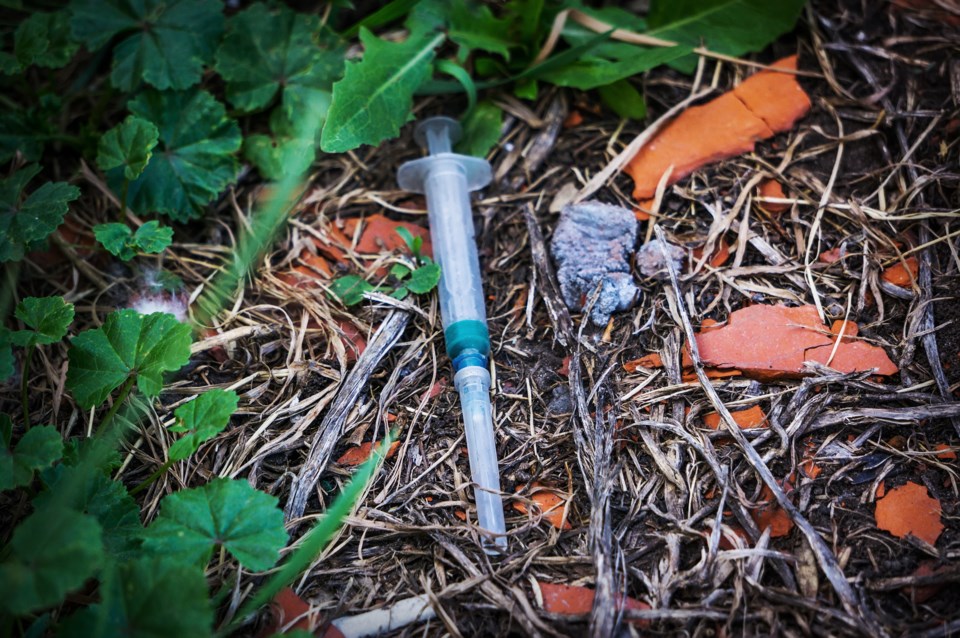B.C.’s 16-month experiment with decriminalizing small amounts of drugs officially ended in failure Tuesday, after Ottawa announced it had agreed to the province’s request for re-criminalization in virtually all public places.
The change puts British Columbia back to what was effectively its position prior to decriminalization beginning in January 2023 — that police will largely ignore most small-scale drug offences, but reserve the right to move people along, seize their illicit substances and arrest them if they prove disruptive or unsafe.
“We know we have to have a balance [between] public safety and public health,” said federal Addictions Minister Ya’ara Saks.
“In the case of public consumption, there shouldn't be disturbances to the public for those who are going about their daily lives.”
The federal Liberals rushed to wash their hands of the controversial program Tuesday after Conservative Leader Pierre Poilievre spent the last week pummelling them daily on how their permissive drug policies had worsened crime and disorder.
Saks took only seven minutes to announce her decision at an impromptu scrum with reporters in Ottawa. Half the time was spent downplaying concerns the City of Toronto might want to try decriminalization as well. The minister took no questions from British Columbians, granted no interviews to anyone actually affected by the policy change, and then disappeared.
That’s the last you’ll hear from the Liberals on this subject, ever.
B.C. New Democrats could only dream of being so lucky.
Alas, they are the architects of their own misfortune, having drafted and executed decriminalization in such a way that infuriated local mayors, harmed small business owners, rendered police powerless and endangered the safety of health-care workers, all while failing to curb deaths in the ongoing toxic drug crisis.
Retreat was inevitable, after such a spectacular botch. Accountability for the failures, however, remains more difficult to find.
“What we've done is respond to community concerns,” said Solicitor General Mike Farnworth.
“They expect their parks, their playgrounds, the streets, to be safe areas, but that they shouldn't have to put up with open drug use. That's never what decriminalization was about. And that's the changes that have been made.”
“British Columbians have been very clear they need to feel safe in their communities,” added Addictions Minister Jennifer Whiteside.
“They want us to treat addiction as a health matter, they want to ensure that individuals have connections to care and support when they need it, and that's the work that we are going to continue to do.”
Responding to concerns. Taking action on safety. Delivering supports where needed. New Democrats continue to invent creative new ways to pivot using passive language. The weaselly words almost make you forget that these are entirely government mistakes, made by an NDP administration that’s now in its seventh year in power.
New Democrat strategists hope abandoning decriminalization will put the issue of public drug use to rest, five months before a provincial election.
To make it stick, they are deploying the three Ds of politics: Deny, deflect and distract. The first two have been on display (albeit unsuccessfully) for the past 16 months. The third begins now.
Premier David Eby has scheduled a press conference Wednesday about “supports for drivers” during the ongoing affordability crisis.
It’s a transparent attempt to change the channel in a crisis. When all else fails, make it rain cash. Which may, at the end of the day, be the only legacy left by B.C.’s brief flirtation with drug decriminalization.
Rob Shaw has spent more than 16 years covering B.C. politics, now reporting for CHEK News and writing for Glacier Media. He is the co-author of the national bestselling book A Matter of Confidence, host of the weekly podcast Political Capital, and a regular guest on CBC Radio.





